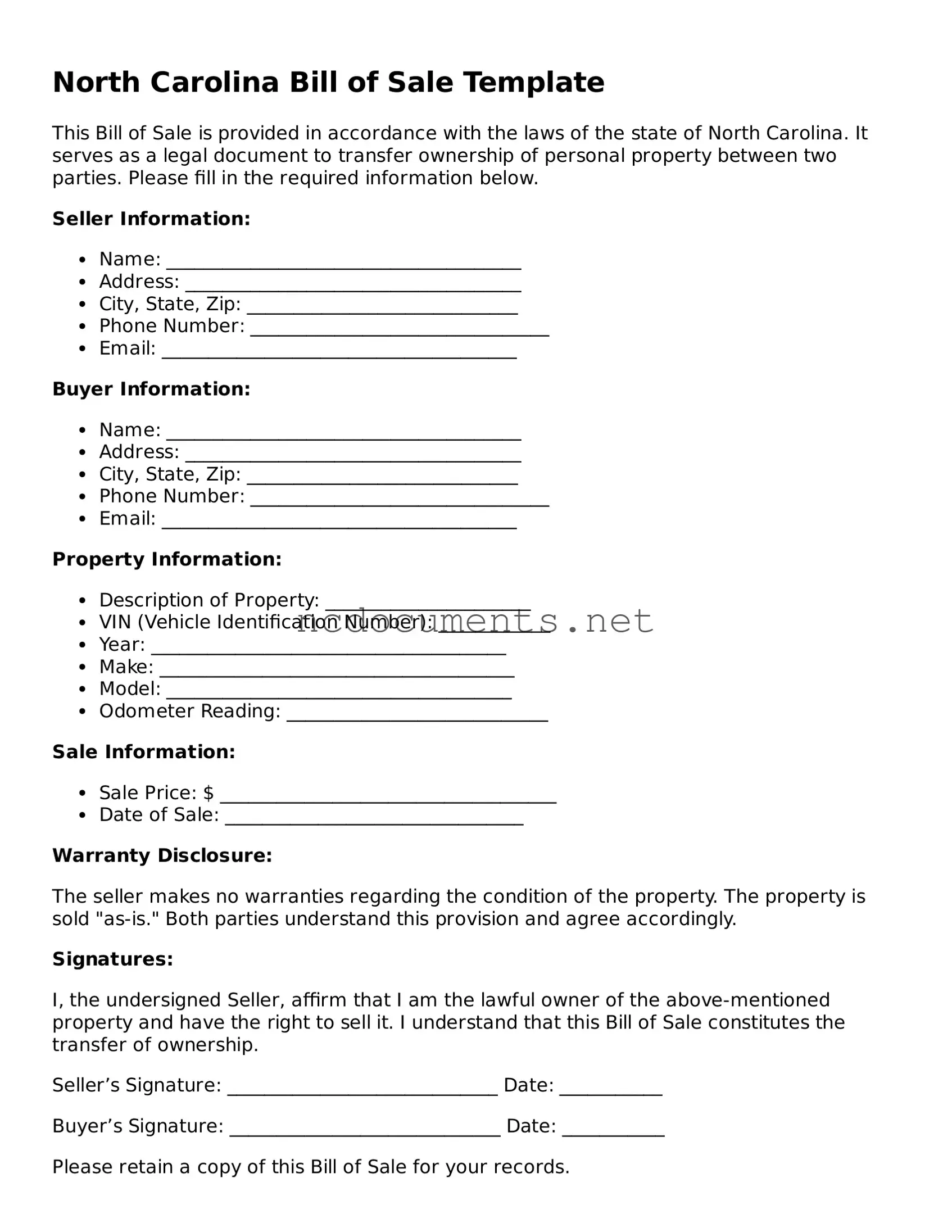The North Carolina Bill of Sale form shares similarities with a Vehicle Title Transfer form. Both documents serve to officially transfer ownership of a vehicle from one party to another. The Vehicle Title Transfer form requires details about the vehicle, including the VIN, make, model, and year, along with the buyer's and seller's information. Like the Bill of Sale, it provides legal proof of the transaction and is often required for registering the vehicle with the Department of Motor Vehicles (DMV). Both documents aim to protect the interests of the parties involved by documenting the terms of the sale.
Another document that resembles the North Carolina Bill of Sale is the Personal Property Bill of Sale. This form is used for the sale of personal items, such as furniture, electronics, or collectibles. It includes a description of the items being sold, the sale price, and the names of both the buyer and seller. Similar to the Bill of Sale, it serves as a legal record of the transaction, providing protection for both parties in case of disputes. Both documents help clarify the terms of the sale and ensure that ownership is officially transferred.
The Equipment Bill of Sale is also comparable to the North Carolina Bill of Sale. This document is specifically designed for the sale of equipment, such as machinery or tools. It includes details about the equipment, including its condition, serial number, and any warranties or guarantees provided by the seller. Like the Bill of Sale, it acts as proof of ownership transfer and outlines the terms of the sale, ensuring that both parties have a clear understanding of their rights and responsibilities.
A Lease Agreement can be seen as similar in purpose to the North Carolina Bill of Sale, though it serves a different function. While the Bill of Sale transfers ownership, a Lease Agreement outlines the terms under which one party rents property from another. It includes details such as the rental amount, duration of the lease, and responsibilities of both the landlord and tenant. Both documents protect the interests of the parties involved and provide a legal framework for the transaction, ensuring clarity and accountability.
Finally, the Warranty Deed is another document that bears similarities to the North Carolina Bill of Sale. A Warranty Deed is used to transfer ownership of real estate and guarantees that the seller holds clear title to the property. It includes information about the property, the parties involved, and any encumbrances. Like the Bill of Sale, a Warranty Deed provides legal proof of the transfer and protects the buyer by assuring them of the seller's ownership. Both documents are essential for formalizing ownership transfers and ensuring that all parties are aware of their rights.

